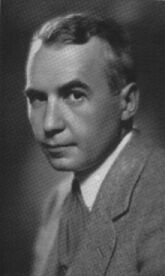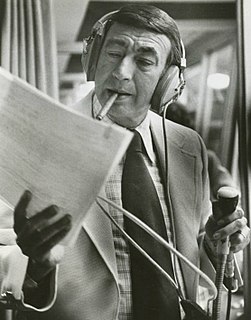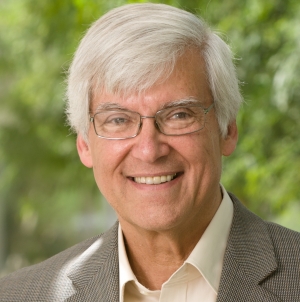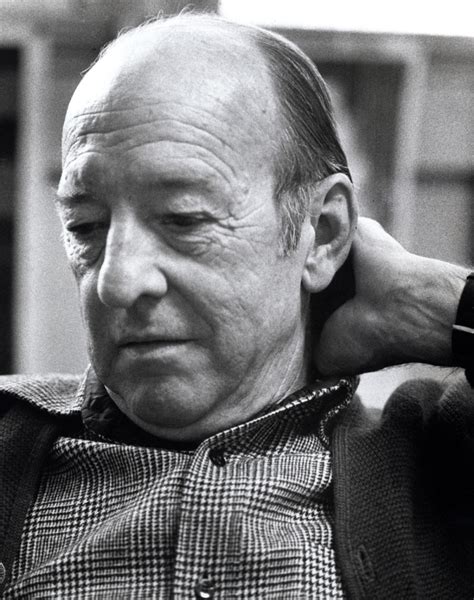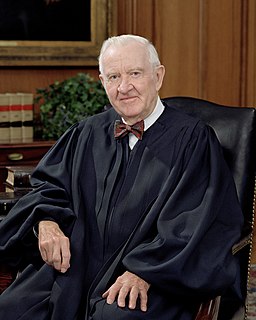Top 478 Roosevelt Quotes & Sayings - Page 8
Explore popular Roosevelt quotes.
Last updated on April 22, 2025.
I think that Eleanor Roosevelt really learned about the limits of power and influence from Arthurdale. She could not make some things happen. And she particularly learned that she could not, just because she was nominally in charge, she could not change people's hearts and minds; that a very long process of education would result before race was on the national agenda. And it really did move her into the racial justice arena with both feet. She came out fighting.
There are many ways to be influential. You can work for politicians or in government and make a difference. And for young women who are interested in running for office, you just have to decide you're going to follow Eleanor Roosevelt's maxim about growing skin as thick as the hide of a rhinoceros, and you have to be incredibly well-prepared - better prepared [than a man], actually - and you have to figure out how you're going to present yourself, and you have to have a support group around you, because it can be really a brutal experience.
Here's another way of putting it. Roosevelt wants recovery to start at the bottom. In other words, by a system of high taxes, he wants business to help the little fellow to get started and get some work, and then pay business back by buying things when he's at work. Business says, 'Let everybody alone. Let business alone, and quit monkeying with us, and we'll get everything going for you, and if we prosper, naturally the worker will prosper.'
I mean, in the campaign of '24 and in '28 and '32, you know, Eleanor Roosevelt insists that women have equal floor space. And this is a great victory over time. Then she wants women represented in equal numbers as men. And she wants the women to name the delegates. And the men want to name the delegates. Well, Eleanor is absolutely furious. And because they don't want her to walk away in 1924, she wins. And this is a great political victory. She has floor space equal to the men, and she has the right to name the women.
There are some patriotic citizens who sincerely hope that America will win the war - but they also hope that Russia will lose it; and there are some who hope that America will win the war, but that England will lose it; and there are some who hope that America will win the war, but that Roosevelt will lose it.
That was the reason why very few people fleeing the rise of fascism in Europe, especially in Germany, could get to the United States. And there were famous incidents like with the MS Saint Louis, which brought a lot of immigrants, mostly Jewish, from Europe. It reached Cuba, with people expecting to be admitted to the United States from there. But the administration of Franklin D. Roosevelt wouldn't allow them in and they had to go back to Europe where many of them died in concentration camps.
She really is a completely different First Lady. Eleanor Roosevelt was not going to suffer and withdraw in the White House. And I think he's a very different President. He does not want his wife to suffer and withdraw in the White House. And they really are partners. They're partners in a big house where there are two separate courts, and they both know they have two separate courts. But these are courts that are allied in purpose, united in vision.
Well, the reality of her father was that he was a very diseased alcoholic, who died at the age of 34. And one always has to pause to wonder how much you have to drink to die at 34. And he was a really tragic father. I mean, he was absolutely unreliable. He was absolutely involved with various people. He had outside families, outside children, outside wives. He made his wife's life miserable. And she [Eleanor Roosevelt]ignored all of his faults and retained this sense of him as the perfect father.
I mean, her father was an alcoholic, and her mother was the suffering wife of a man who she could never predict what he would do, where he would be, who he would be. And it's sort of interesting because Eleanor Roosevelt never writes about her mother's agony. She only writes about her father's agony. But her whole life is dedicated to making it better for people in the kind of need and pain and anguish that her mother was in.
I would always argue to my students that Canada is not necessarily or inherently a left-wing country, and the United States is not necessarily the citadel of right-wing liberty. The obvious case there is Franklin Roosevelt's New Deal, which made the Americans much further left than the Canadians at the time, and Americans coming to Canada found us backward, conservative, and out of tune with the kind of free-spirited liberalism that there was in the States. Then things reversed, with medicare the prime example.
An unspeakable tragedy, confirmed to us by ABC News in New York City: John Lennon, outside of his apartment building on the West Side of New York City, the most famous, perhaps, of all the Beatles, shot twice in the back, rushed to Roosevelt Hospital, dead on arrival. Hard to go back to the game after that news flash, which in duty bound, we have to take.
Up until, really, Roosevelt, African-Americans largely voted ninety per cent Republican. That was the political origins, that's what their political voice was in the Republican party. During that history, that last sixty or seventy years of history, the Republican party effectively walked away from the community. They were afraid to really embrace civil rights even though they embraced civil rights legislation. And so it's not enough to just to put it on paper, you gotta actually show up and be in the community, and understand what that struggle was really about.
Her [Eleanor Roosevelt] father was the love of her life. Her father always made her feel wanted, made her feel loved, where her mother made her feel, you know, unloved, judged harshly, never up to par. And she was her father's favorite, and her mother's unfavorite. So her father was the man that she went to for comfort in her imaginings.
The British have their own conception of what constitutes the typical American. He must have a flavor of the Wild West about him. He must do spectacular things. He must not be punctilious about dignity, decorum and other refinements characteristic of the real British gentleman. The Yankee pictured by the Briton must be a bustler. If he is occasionally flagrantly indiscreet in speech and action, then he is so much more surely stamped the genuine article. The most typical American the British ever set their eyes on was, in their judgment, Theodore Roosevelt.
It is difficult to find a reputable American historian who will acknowledge the crude fact that a Franklin Roosevelt, say, wanted to be President merely to wield power, to be famed and to be feared. To learn this simple fact one must wade through a sea of evasions: history as sociology, leaders as teachers, bland benevolence as a motive force, when, finally, power is an end to itself, and the instinctive urge to prevail the most important single human trait, the necessary force without which no city was built, no city destroyed.
Churchmen are quick to defend religious freedom; lawyers were never so universally aroused as by President Roosevelt's Court bill; newspapers are most alert to civil liberties when there is a hint of press censorship in the air. And educators become perturbed at every effort to curb academic freedom. But too seldom do all of these become militant when ostensibly the rights of only one group are threatened. They do not always react to the truism that when the rights of any individual or group are chipped away, the freedom of all erodes.
Roosevelt could always keep ahead with his work, but I cannot do it, and I know it is a grievous fault, but it is too late to remedy it. The country must take me as it found me. Wasn't it your mother who had a servant girl who said it was no use for her to try to hurry, that she was a "Sunday chil" and no "Sunday chil" could hurry? I don't think I am a Sunday child, but I ought to have been; then I would have had an excuse for always being late.
I think the fact that she [Eleanor Roosevelt] was a woman probably in those days would have been an additional criticism, although first ladies by definition in those days were women. There's always been a problem and still is, about the role the first lady should play, of course. Everybody's seen it in Jackie Kennedy and Nancy Reagan and, heaven knows, Hillary Clinton. So the problem has not been solved.
By 1938, Eleanor Roosevelt was so angry at FDR's policies, she writes a book called This Troubled World. And it is actually a point-by-point rebuttal of her husband's foreign policy. We need collective security. We need a World Court. We need something like the League of Nations. We need to work together to fight fascism. We need embargoes against aggressor nations, and we need to name aggressor nations. All of which is a direct contradiction of FDR's policies.
A lot of people say that Eleanor Roosevelt wasn't a good mother. And there are two pieces to that story. One is, when they were very young, she was not a good mother. She was an unhappy mother. She was an unhappy wife. She had never known what it was to be a good mother. She didn't have a good mother of her own. And so there's a kind of parenting that doesn't happen.
That was a general impression that one got, that she [Eleanor Roosevelt] was always flitting around the country and descending on some place in the Ozarks that she decided was disadvantaged, and announcing that something had to be done. And she had a very active social conscience, which I think in general is to her credit, although it tended, as many people thought, to just be overdone to the point where it gave rise to this crack that she regarded the whole world as one vast slum project
Activist Supreme Courts are not new. The Dred Scott decision in 1856, imposing slavery in free territories; the Plessy decision in 1896, imposing segregation on a private railroad company; the Korematsu decision in 1944, upholding Franklin Roosevelt’s internment of American citizens, mostly Japanese Americans; and the Roe decision in 1973, imposing abortion on the entire nation; are examples of the consequences of activist Courts and justices.
What is a war criminal? Was not war itself a crime against God and humanity, and, therefore, were not all those who sanctioned, engineered, and conducted wars, war criminals? War criminals are not confined to the Axis Powers alone. Roosevelt and Churchill are no less war criminals than Hitler and Mussolini. England, America and Russia have all of them got their hands dyed more or less red - not merely Germany and Japan.
To picture Roosevelt as a man at this time in his life - he felt he was old. He was 53 years old, feeling lonely and irrelevant. And all of a sudden, he takes on this campaign, and it becomes a crusade for popular government. And he ultimately goes on fire in the campaign, but he discovers he's up against all the old machine tactics that he used to use himself, and he has to let the public get involved. And he energizes the public through the most extreme kind of rhetoric, which truly brings him into the streets and onto his side.
I want to take my American friends back to the end of World War II, when the Universal Declaration of Human Rights was formulated. A group of thinkers met to come up with ways and means to prevent yet another war. Mrs. Eleanor Roosevelt played a crucial role in assembling this group of people. And that is why the name of the United States is synonymous with the cause of human rights around the world.
And during the campaign of 1936, she writes that she and her brother would always rather be out doing things when they're sick, rather than take to their beds. And I think Eleanor Roosevelt always responded to pain by doing more, by doing something, by being active. And I think she just couldn't bear to look at her childhood grief. And she didn't.
This national argument is usually interpreted as a battle between imperialists led by Roosevelt and Lodge and anti-imperialists led by William Jennings Bryan and Carl Schurz. It is far more accurate and illuminating however, to view it as a three-cornered fight. The third group was a coalition of businessmen, intellectuals, and politicians who opposed traditional colonialism and advocated instead a policy of an open door through which America's preponderant economic strength would enter and dominate all underdeveloped areas of the world.
I think Eleanor Roosevelt always had a most incredible comfort writing letters. I mean, she was in the habit of writing letters. And that's where she allowed her fantasies to flourish. That's where she allowed her emotions to really evolve. And that's where she allowed herself to express herself really fully, and sometimes whimsically, very often romantically. And it really starts with her letters to her father, who is lifelong her primary love.
[The right] may never bring prayer back to schools, but it has rescued all manner of rightwing economic nostrums from history's dustbins. Having rolled back the landmark economic reforms of the sixties (the war on poverty) and those of the thirties (labor law, agricultural price supports, banking regulation), its leaders now turn their guns on the accomplishments of the earliest years of progressivism (Woodrow Wilson's estate tax; Theodore Roosevelt's anti-trust measures). With a little more effort, the backlash may well repeal the entire twentieth century.
I received a most amusing postcard the other morning. Unfortunately, it was not signed in a readable manner so I cannot answer it privately. But it comes from Moblie, Ala., and says: 'Dear Mrs. Roosevelt: You have not answered my question, the amount of Negro blood you have in your veins, if any.' I am afraid none of us know how much nor what kind of blood we have in our veins, since chemically it is all the same. And most of us cannot trace our ancestry more than a few generations.
I mean, if you pause over what it means at the age of 76 that Eleanor Roosevelt wrote, the happiest single day of her life was the day she made the first team at field hockey. Field hockey is a team sport. Field hockey is a knockabout - I mean, picture Allenswood, the swamps of north London. It's a messy sport. So she really enjoyed playing this rough-and-tumble sport in the mud of Allenswood, a team sport. And she was very competitive. And she loved being competitive, and she loved to win. And that, I think, was all of the things that Allenswood enabled.
And in the same way, FDR's not much of a father. Although the children in all their memoirs really talk about what a fun-loving guy Dad was, and how brooding and unhappy Mom was. The children sort of blame it all on the mother. Well, this is kind of standard and typical, and aggrieved Eleanor Roosevelt that she was not a happier mother. She wanted to be a happier mother. And I must say, she was a happier grandmother.
Well, when Eleanor Roosevelt's mother dies, she goes to live with her Grandmother Hall. And her Grandmother Hall is in mourning. She's in widow's weeds. She's in her 50s, but appears very old. And she's exhausted from raising rather out-of-control children. Her favorite daughter, Anna, has died (Eleanor's mother), and she has living at home two other sons, Vallie and Eddie. And they are incredible sportsmen, incredible drinkers, out-of-control alcoholics.
Stevenson had noble ideas--as did the young Franklin for that matter. But Stevenson felt that the way to implement them was to present himself as a thoughtful idealist and wait for the world to flock to him. He considered it below him, or wrong, to scramble out among the people and ask them what they wanted. Roosevelt grappled voters to him. Stevenson shied off from them. Some thought him too pure to desire power, though he showed ambition when it mattered.
People who thought that she was busy going around trying to stir up difficulty where there was none or less than she imagined, were quite critical of her. She was, we must never forget, a public figure. And in democracies, public figures tend to attract criticism as well as praise. The most dangerous thing would be if anybody were regarded as above criticism. And Eleanor Roosevelt is, in recent years, getting there.
When we were working on immigration reform and there was a young Latino man, young immigration activist here who, in the Roosevelt Room, refused to shake my hand.He made a point of saying, "I can't shake your hand; you're deporting too many people." And I just said to him, "Young man, I'm glad that you feel so passionately about this issue, but you're with the president right now in the White House. You've got to think about what's going to be most effective in getting what you need, what you're trying to accomplish. Because this may not be your best strategy."
It is only possible to succeed at second-rate pursuits - like becoming a millionaire or a prime minister, winning a war, seducing beautiful women, flying through the stratosphere, or landing on the moon. First-rate pursuits - involving, as they must, trying to understand what life is about and trying to convey that understanding - inevitably result in a sense of failure. A Napoleon, a Churchill, or a Roosevelt can feel himself to be successful, but never a Socrates, a Pascal, or a Blake. Understanding is forever unattainable.
When you have three out of the four largest banks in America today, bigger than they were - significantly bigger than when we bailed them out because they were too big to fail, I think if Teddy Roosevelt were alive today, a good Republican by the way, what he would say is: Break them up; they are too powerful economically; they are too powerful politically.
I think the important thing to remember about the Japanese internment is the situation. We had been attacked. Maybe Roosevelt expected it - I rather think he did. I don't think he expected an attack on Pearl Harbor. I think he expected an attack on Southeast Asia. But we were attacked at Pearl Harbor
I think her Grandmother Hall gave her a great sense of family love, and reassurance. Her grandmother did love her, like her father, unconditionally. And despite the order and the discipline - and home at certain hours and out at certain hours and reading at certain hours - there was a surprising amount of freedom. Eleanor Roosevelt talks about how the happiest moments of her days were when she would take a book out of the library, which wasn't censored.
I just think, realistically, there's a lot of room outside the Trump populist right and the Bernie-Sanders-Elizabeth-Warren populist left. There are a lot of us who believe in open trade, open borders, a dynamic forward-looking economy, not a nostalgic economy, but do want to provide a significant level of social service or sort of economic Milton Friedman foreign policy, Ronald Reagan domestic policy, Franklin Roosevelt. And there's a lot of room in the center.
I think the most important thing I wanted to say at various times to Franklin and Eleanor Roosevelt was that it seemed so sad to me that - I really believe they loved each other and had a great deal of affection - but because of that early hurt in their marriage, there was a certain kind of distance from then on, until their deaths actually. So at times, I just wanted to push them together and say, "Come on, you guys! I know you love each other. This is crazy!"
So in 1924, Eleanor Roosevelt really gets a sense of what the limits of the battle and the contours of the battle are going to be. The men are contemptuous of the women, and the women really need to organize. She writes an article which becomes an article she writes in different ways over and over and over again: Women need to organize. They need to create their own bosses. They need to have support networks and gangs so that they are a force.
At bottom, the Court's opinion is thus a rejection of the common sense of the American people, who have recognized a need to prevent corporations from undermining self-government since the founding, and who have fought against the distinctive corrupting potential of corporate electioneering since the days of Theodore Roosevelt. It is a strange time to repudiate that common sense. While American democracy is imperfect, few outside the majority of this court would have thought its flaws included a dearth of corporate money in politics.
People try so hard to believe in leaders now, pitifully hard. But we no sooner get a popular reformer or politician or soldier or writer or philosopher -- a Roosevelt, a Tolstoi, a Wood, a Shaw, a Nietzsche, than the cross-currents of criticism wash him away. My Lord, no man can stand prominence these days. It's the surest path to obscurity. People get sick of hearing the same name over and over.
There is too much fathering going on just now and there is no doubt about it fathers are depressing. Everybody now-a-days is a father, there is father Mussolini and father Hitler and father Roosevelt and father Stalin and father Trotsky and father Blum and father Franco is just commencing now and there are ever so many more ready to be one. Fathers are depressing. England is the only country now that has not got one and so they are more cheerful there than anywhere. It is a long time now that they have not had any fathering and so their cheerfulness is increasing.
"Baby, you know?" my mother once said to me. "I think you're the greatest woman I've ever met - and I'm not including my mother or Mrs. Eleanor Roosevelt in that." She said, "You are very intelligent and you're very kind, and those two qualities do not often go together." Then she went across the street and got in her car, and I went the other way down to the streetcar. I thought, "Suppose she's right. She's intelligent - and she's too mean to lie." You see, a parent has the chance - and maybe the responsibility - to liberate her child. And my mom had liberated me when I was 17.
I often ask myself: "What would Theodore Roosevelt do?" One can never know, of course. The ultimate contribution of consequential leaders is often their capacity to reframe issues in novel ways. That said, his leadership engaged, at a foundational level, whether the American "national character" would accept decline and mediocrity, or would go all-in for leadership and excellence. Amid the myriad of otherwise disconnected issues before us, that choice is emerging yet again.
The problem was that Panama technically belonged to Colombia, which refused to sign a treaty leasing it to the United States. So Roosevelt sent a gunboat filled with marines down to Panama, just on the off chance that a revolution might suddenly break out, and darned if one didn't, two days later. Not only that, but the leaders of the new nation of Panama-talk about lucky breaks!-were absolutely thrilled to have the United States build a canal there. 'Really, it's our pleasure,' they told the marines, adding, 'Don't shoot.'
Eleanor Roosevelt fights for an anti-lynch law with the NAACP, with Walter White and Mary McLeod Bethune. And she begs FDR to say one word, say one word to prevent a filibuster or to end a filibuster. From '34 to '35 to '36 to '37 to '38, it comes up again and again, and FDR doesn't say one word. And the correspondence between them that we have, I mean, she says, "I cannot believe you're not going to say one word." And she writes to Walter White, "I've asked FDR to say one word. Perhaps he will." But he doesn't. And these become very bitter disagreements.
But it's also the beginning of another level of liberation for her]Eleanor Roosevelt], because when she returns to New York, she gets very involved in a new level of politics. She meets Esther Lape and Elizabeth Read, and becomes very involved in the women's movement, and then in the peace movement. And ironically, the years of her greatest despair become also the years of her great liberation.
I don't think she ever had a single initiative at the United Nations that was not previously [vetted] by the people at the State Department, approved of, and authorized. She did manage to get around the world an awful lot, and find other parts of her vast slum project that needed repair. But I don't think that that was the main point. The main point was that she, after all, connoted Franklin Roosevelt, who by then was long dead, and had a certain prestige and power on that account.
An American leader would be derelict of duty if he did not seek to understand all his options in such unprecedented circumstances. Presidents Lincoln during the Civil War and Roosevelt in the lead-up to World War II sought legal advice about the outer bounds of their power - even if they did not always use it. Our leaders should ask legal questions first, before setting policy or making decisions in a fog of uncertainty.
And she [Eleanor Roosevelt]loves being a star. And she loves being a teacher and a leader and a mentor and a big friend. Also, she's tall. She's one of the tallest girls in the school. And she's an athlete. And she writes many years later, at the end of her life, she writes that the happiest day, the happiest single day of her life was the day that she made the first team at field hockey. And I have to say, as a biographer, that's the most important fact. I
Barack Obama did get a higher percentage of the vote than anybody has in this country in 20 years. I mean, it was a resounding victory. I mean, whether his core constituency was 20 percent or what, his electoral constituency, which is how we measure elections, was 53 percent, which was, you know, historically high, the highest of any Democrat, other than Franklin Roosevelt and Lyndon Johnson.
I think FDR was very dashing and charming and debonair, and probably reminded her of her father. A great bon-vivant. He loved to party. He loved to sing. He loved to have fun. And he wrote beautiful letters, just as her father did, which - alas and alack - Eleanor Roosevelt destroyed. But she refers to his beautiful letters. And she was charmed by him.
It's right around this time that her Grandmother Hall dies. And Eleanor Roosevelt is responsible for making all the funeral arrangements. And there are a couple of things that she really understands, as she contemplates her grandmother's life and makes the funeral arrangements. One, she's really talented, an organizational woman. She knows how to do things. She begins to compare her life to her grandmother's life. And it's very clear to her that being a devoted wife and a devoted mother is not enough.



